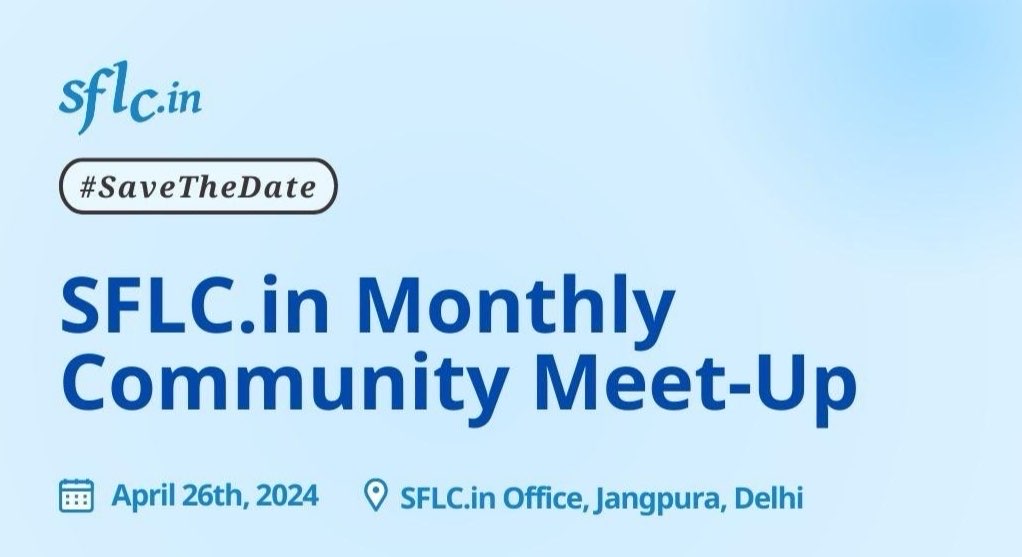In continuation to our event, Ballots and Bots – Elections 2024 in a Digital World, team SFLC.in organised a Community Meet up on 26th April 2024 in our Delhi office. The meet up included a documentary viewing and discussions on the different aspects of fact checking and its impact on key stakeholders.
The event was marked by highly interactive exercises which focused on the challenges of fact checking and its potential solutions, respectively. It was inspiring to see the participants from diverse backgrounds engage actively in conversations and share their experiences. Every participant had valuable input to contribute, making it a truly productive event.
Key challenges highlighted by participants :-
- The volume of fake news coupled with the alarming speed at which it is shared, is making it challenging for fact checkers to keep up and effectively combat misinformation.
- Social media platforms play a key role in disseminating information to a wide audience in a short period of time. Algorithms push sensational headlines and varying policies of different social media can make it difficult to curb fake information.
- Deep Fakes are still mostly an urban-centric concept and are yet to reach rural areas at a wide scale. Misinformation is more likely to spread via offline practices (afwah) such as word-of-mouth, and the community networks in rural areas are very close knit – making it difficult to debunk rumours. Additionally, public education efforts in rural areas for fact-checking are not feasible. Resource constraints can cause several logistical problems.
- Fake news has several layers that aim to influence different aspects of our society – religious, gender, social, caste etc. The same piece of mis/dis information can target diverse groups and influence narratives.
- Fact-checkers are also facing challenges in verifying information in multiple languages. Tools to translate data are readily available, making it easier for misinformation to reach specific communities or regions.
Key solutions suggested by participants :-
- It is crucial to educate oneself about media literacy to discern credible sources from misinformation. Always look for :
- Where has the information come from?
- Who has shared the information?
- What is the information? (If it’s too good or bad to be true – verify immediately)
- Media houses must have a dedicated team of fact checkers or a fact checking unit. This is to ensure that fact checking is done at every stage of news production and there’s greater clarity on the context of misinformation.
- Public education and awareness exercises such as offline workshops to help upskill citizens at an individual level. Community organisations must step in to ensure that the importance of verifying information reaches members of the community effectively,
- Since the world is getting digitised at an exponential speed, it is imperative to inculcate fact checking at an individual level. Teaching children and youngsters about the need for fact checking at an early age can save citizens from falling prey to the influence of misinformation.
We are happy to share that we will be continuing the all important conversation, stay tuned for more updates on this!




